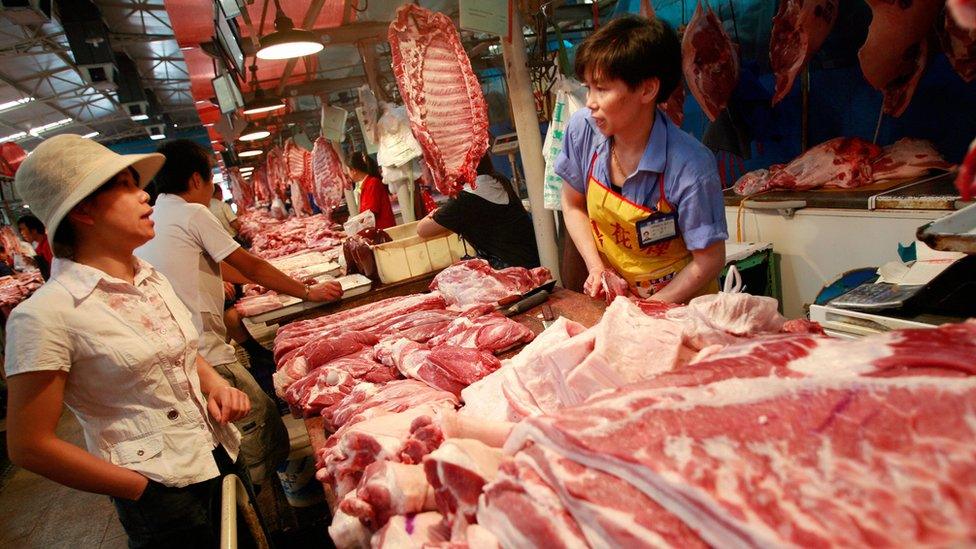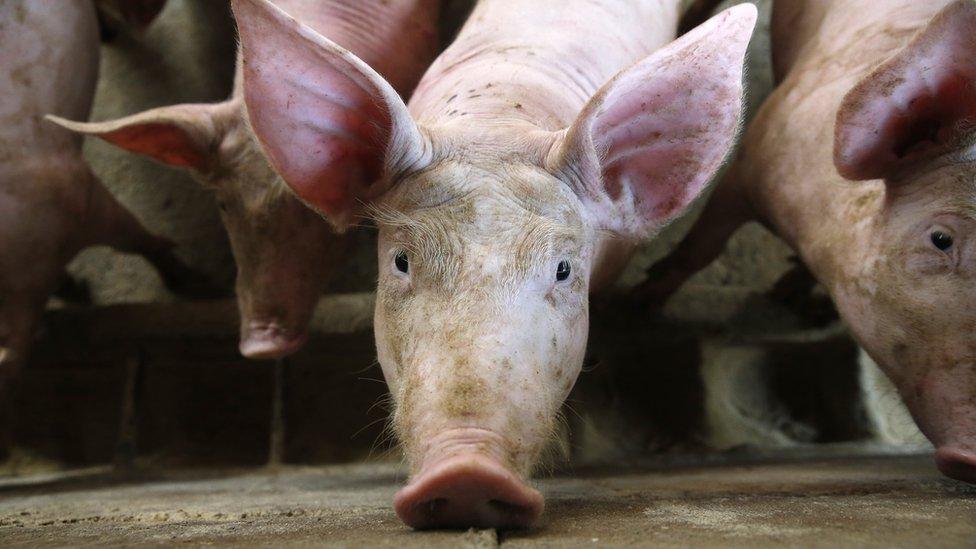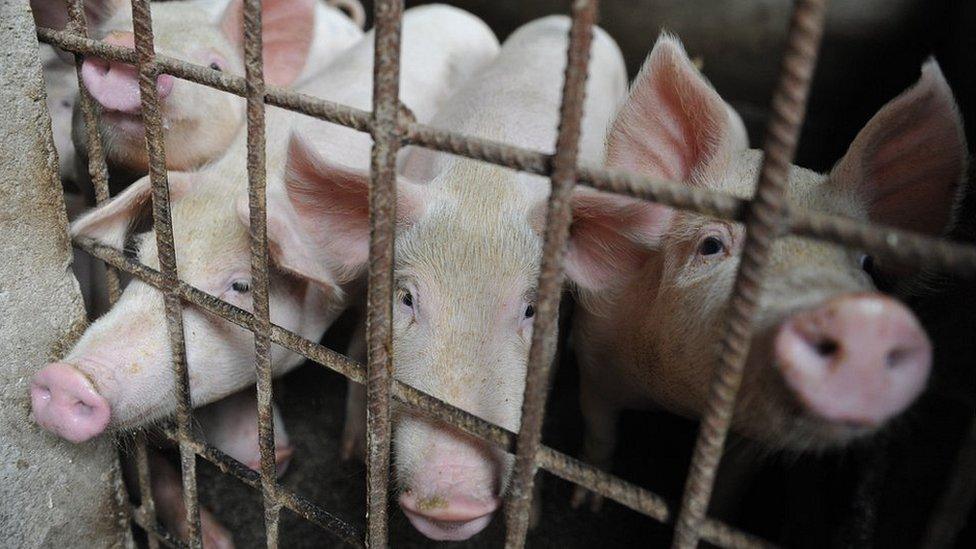China to tap pork reserves as swine fever hits industry
- Published

China is set to release pork supplies from its central reserves as it moves to tackle soaring prices and shortages caused by an outbreak of swine fever.
A state-backed body will auction 10,000 tonnes of frozen pork from its strategic reserves on Thursday.
China, the world's biggest producer and consumer of pork, has struggled to control the spread of the disease.
Beijing has slaughtered more than 1 million pigs, external in a bid to contain the incurable pig virus.
The highly contagious disease is not dangerous to humans, but has hit China's crucial pig-farming industry and driven up costs for consumers.
Pork prices jumped 46.7% in August on a year earlier, official figures showed. , external
In a bid to stabilise prices, a state-backed group that manages the pork reserves will auction imported frozen pork from countries including Denmark, France, the US and UK.
Only 300 tonnes will be sold to each bidder at the auction.
Pork is used widely in Chinese festivals, and the auction comes as the country prepares to celebrate a week-long national holiday for the 70th anniversary of the People's Republic of China.
Julian Evans-Pritchard, senior China economist at Capital Economics, said the auction would provide slight relief to the industry but would not do much to contain prices.
"In itself, I don't think it will be able to prevent pork prices from rising further unless they manage to get the disease under control," he said.
Beijing created its strategic pork reserve in 2007 but the size of the stockpile is not known.
Capital Economics estimates that at most, the stockpile would hold four days' worth of pork supplies to feed China.
How has swine fever hit China's pork industry?
Pork is one of China's main food staples and accounts for more than 60% of the country's meat consumption. The industry produced close to 54 million tonnes of pork last year, external.
About 1.2 million pigs have been culled in China in an effort to halt the spread of swine fever since August 2018, according to data from the Food and Agriculture Organization, a UN agency.
In April, Rabobank estimated Chinese pork production would fall by up to 35% this year due to swine fever.
The supply shortage has sent pork prices soaring and has eaten into household incomes.
That poses a fresh challenge for the Chinese economy, which is already facing a slowdown and a trade war between Beijing and Washington.
- Published9 September 2019

- Published25 April 2019
